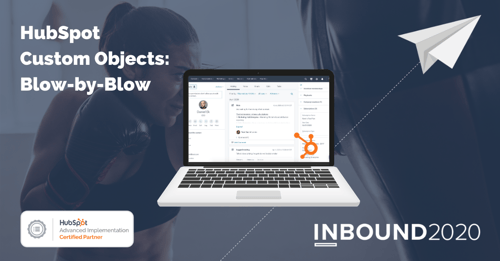
At the very core of your business, is your sales team. They're on the front line, championing your brand, sniffing out new leads, getting customers over the line, and maintaining those ever important relationships.
But in order for members of your sales team to succeed, they need the right support and tools to do so. Which is why, nowadays, having a sales playbook for your company is so important.
What is a Sales Playbook?
A sales playbook outlines what a rep should do in a specific selling situation, such as prospecting, or when selling a specific product. It includes things like sales enablement materials, strategies, questions, KPIs, buyer personas, sales process details, and more.
-HubSpot
A sales playbook will help align your salespeople's activities with the buyer’s journey. Like a football playbook, different plays are designed for different sales scenarios. So in other words, your sales playbook will become a sales rep Bible. They will live and die by it. Which is why taking the time to create, maintain and update and sales playbook will be unbelievable beneficial for your business in the long-term.
Is it Really That Beneficial?
Would we be writing this blog if it wasn't? Nope. But let's quickly scan over some of the benefits a playbook can bring to your company.
- Standardise best practices
- Add consistency to the sales story
- Makes training quicker and easier
- Frees up valuable time for sales reps
- Accelerate sales processes by providing sales resources at all times
- Add consistency to the sales process because the steps are clearly defined and outlined
Getting Your Playbook Underway
Now, it's worth stressing that one company's sales playbook doesn't apply to another; no two will be the same. But the following steps are a blanket approach which you can apply to creating your own successful playbook.
1. Review Your Sales Process
The first thing you need to do before you start writing down all the millions of ideas you have rattling around your head is review everything that happens in your sales process already. You'll want your sales playbook and sales process to reflect each other seamlessly and clearly, so you'll need to review, if necessary, your processes and get a clear picture of how it all works.
Take note of everything that is already being used; including what is working and what isn't. Creating a sales playbook doesn't mean starting from scratch and reinventing the wheel, and why scrap something that already works? Re-purpose the things that work well for your team into your new sales playbook.
2. Outline Your Goals
Clearly define your goals from the beginning so you know what questions need answering. Goals like the following:
- What do we need from this playbook?
- What does this playbook need to include?
- What processes need to be ironed out?
- What are common pain points that can be fixed by this?
These goals need to be specific and reflect what you need to get out of the playbook. And remember, don't over complicate things here, keep it simple.
3. Who Should You Be Collaborating With?
This playbook isn't the work of one person. Instead, it's a collaboration with multiple people in your business.
Talking with your sales team is a great place to start. They're on the front line and will be able to tell you what works well and what doesn't.
Talk to marketing and get their input, making sure your sales playbook follows the company guidelines and tone of voice will be important. Your playbook also needs content, and who are they content kings? Also, this communication also reflects the collaboration that always needs to happen between sales and marketing for businesses to thrive.
Tap into your executives and managers, they can make sure your company goals and vision are laced through everything your playbook is trying to achieve.
4. Refer to Your Buyer Personas
It doesn’t really matter how awesome your product or service is if you don’t know who to sell it to. If you don’t know who your audience is, you won’t be able to make them take notice of it. Which is why it's vitally important to have your buyer personas defined.
By referring to your buyer personas at this stage, you'll be sharing information with your reps on who your audience is and how they need to talk them.
5. In-Depth Product Knowledge
In order to sell, reps need to know what they're selling. Pretty straight forward, huh? But in order to sell effectively, product knowledge is key. So make sure your playbook has enough information on everything to educate your reps, especially those who are new.
And while we're on the topic, make sure you're continually investing in your reps. Hold training sessions, go to seminars, and just encourage upskilling across the board.
6. Draw Up Those Winning Plays
Start writing up those game-winning plays but make sure when you write up each play, however, it's clear and digestible. A successful playbook will be able to balance getting all the information across while remaining engaging. Remember, this playbook is designed to be used effectively, not just cast aside away.
7. Share, analyse, and optimise.
Now that you've finalised your playbook (congratulations), share it around with your team and get their feedback on it. Make sure it's fine tuned and ready to be used every day.
But the fun doesn't stop there. As the world continues to evolve, so will your products, and so will your sales team. It's worth reviewing your sales playbook from time-to-time and making sure it's still up-to-date.
If you're thinking about starting your own playbook for your team, that's great! HubSpot offers a Playbook function within their CRM.
So if you're interested in learning more we've got a CRM comparison tool that'll give you the rundown of everything else you need to know.



